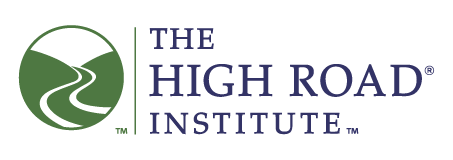Some brief survey results presented in USA Today caught my attention. According to the research conducted by Monster.com, this question was posed: “Would you reveal company secrets for money?”
The responses were
40% said “No, my company is not interesting enough.”
35% said “No, I’d be too worried I’d get caught.”
17% said “Yes, I have a price I’d sell them for.”
8% said “Yes, I’ve done it already.”
That means that 60% of those responding have considered engaging in this unethical practice, which tells me that if the price is right, employees have or would disclose company secrets. Notice that the fear of getting caught is cited as a reason rather than: “NO. Doing it would be unethical!”
Even the response that “My company isn’t interesting enough” is concerning because I believe the appropriate answer again would be: “NO. I would never do something illegal like that.”
Both modern society and business culture use money to define what is most important and as the most significant measurement of accomplishment and status. This worship of the almighty dollar allows people, who lack a strong conviction to be honest and ethical, to put money ahead of principle.
Ergo, the results of this limited survey tell me that the high road is not the path of choice in most organizations today.
Here are my concerns regarding this neglect to take the high road when it comes to money and doing things that can hurt the employer.
Concern 1 – The idea of doing something illegal and unethical for money would never be something that the high road professional considers.
Concern 2 – I wonder what other questionable acts employees are willing to engage in if ‘the price is right.’
What about:
Making your performance look better than it really is so you can get a raise or promotion?
Disclosing your boss’s secrets in order to gain leverage or take advantage?
Forcing an employee to do something against policy?
Taking another employee’s sales opportunity away so you get the commission?
Calling in sick so you can spend the day at the lake?
Walking out the door with company money or something else of value?
Getting another employee to mark you as coming in on time even though you were late?
Stealing your employer’s products and then selling them on eBay?
Running your own personal business on company time?
Denying an employee a raise or promotion because they did not curry your favor?
Using paid time to text friends or web search items of personal interest?
My point is simply this: A person with integrity will not put a price on questionable acts. He or she would consider themselves as above reproach when it comes to putting money ahead of principle. However, much of what we hear through stories, news articles, TV shows, and other forms of communication send a strong message that everything has a price, including a person’s integrity and loyalty.
By the way, all those questionable acts that I mentioned earlier are actually taking place in your workplace today, whether you are aware of them or not.
In his book The (Honest) Truth about Dishonesty, behavioral economist Dan Ariely, who teaches at Duke University, commented on the amount of people who cheat and steal from an employer. He suggests that 1% of people would never steal, another 1% would always try to steal, and the rest of your employees—98%—are honest as long as they are not easily tempted. The Institute of Fraud Examiners postulates a similar view but the numbers are different. According to their forensic findings over the years, they believe that 3% of employees will defraud their employers, 3% never would do it thus leaving 94% who would defraud if the opportunity arises.
At the High Road® Institute, we take a more pragmatic approach and estimate that approximately 8 to 10% of your employees will be ethical and honest no matter what, between 8 and 10% will take always advantage of you, and the remaining group will give in to temptation if ‘the price is right.’
If you are concerned that your organization has employees who would sell secrets or commit other questionable acts that harm your brand and reputation because ‘the price is right,’ then your culture needs to be examined and the guiding principles upgraded. This culture shift towards taking the high road is something that we can help you accomplish.
When everyone chooses to take the high road, the company benefits from having the highest level of integrity. But once an employee chooses to take the low road and puts money ahead of principle, that makes it easier for other employees to do the same.

